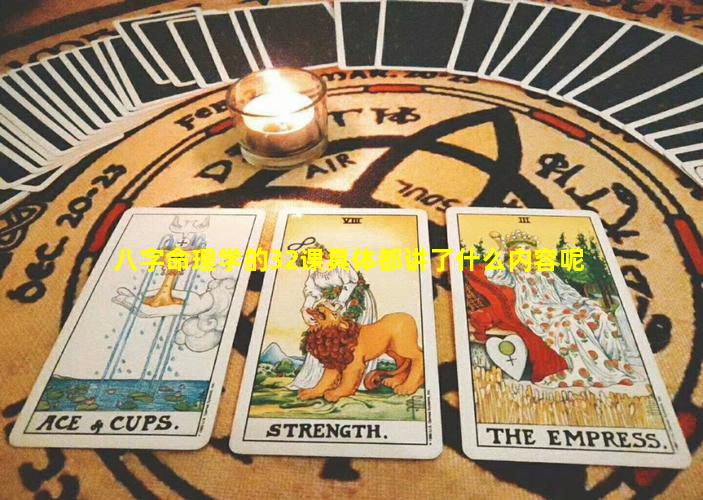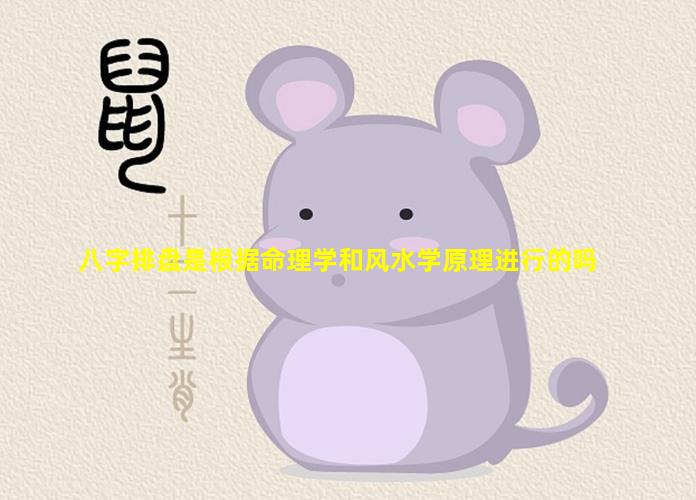八字命理学的32课具体都讲了什么内容呢
- 作者: 彭健达
- 发布时间:2024-08-19
一、八字命理学的32课具体都讲了什么内容呢
八字命理学32课
第14课:基础理论
八字命理学
十神与五行生克
四柱与大运
神煞与格局
第58课:日主与用神
日主的强弱
用神的确定
用神与忌神的作用
用神与格局的配合
第912课:十神详解
正官、偏官
正印、偏印
正财、偏财
食神、伤官
第1316课:五行详解
金、木、水、火、土
五行的生克制化
五行的旺衰与平衡
五行的喜忌与调候
第1720课:四柱详解
年柱、月柱、日柱、时柱
四柱的组合与格局
四柱的旺衰与平衡
四柱的喜忌与调候
第2124课:大运详解
大运的划分与作用
大运的旺衰与平衡
大运的喜忌与调候
大运与四柱的配合
第2528课:神煞详解
天乙贵人、太极贵人
文昌贵人、华盖贵人
天德贵人、月德贵人
羊刃、劫煞
第2932课:实战应用
八字命理学的应用范围
八字命理学在择吉、择业、择偶中的应用
八字命理学在预测吉凶、趋吉避凶中的应用
八字命理学在人生规划、运势调理中的应用
二、八字命理学的32课具体都讲了什么内容呢视频
八字命理学32课
第1课:八字命理学简介
八字命理学的起源和发展
八字命理学的原理和基础
第2课:五行生克制化
五行的相生相克关系
五行的制化原理
第3课:十神详解
十神的含义和作用
十神之间的生克制化关系
第4课:四柱排盘
四柱的组成和排盘方法
四柱的含义和作用
第5课:神煞详解
神煞的种类和作用
神煞在命理中的应用
第6课:大运流年
大运和流年的概念和作用
大运流年对命局的影响
第7课:命局格局
命局格局的分类和含义
命局格局对命主运势的影响
第8课:用神喜忌
用神和喜忌的概念和作用
用神喜忌的判断方法
第9课:命局分析
命局分析的基本步骤
命局分析的要点和技巧
第10课:财运分析
财运的种类和影响因素
财运分析的方法和技巧
第11课:事业分析
事业的种类和影响因素
事业分析的方法和技巧
第12课:婚姻分析
婚姻的种类和影响因素
婚姻分析的方法和技巧
第13课:健康分析
健康的种类和影响因素
健康分析的方法和技巧
第14课:子女分析
子女的种类和影响因素
子女分析的方法和技巧
第15课:父母分析
父母的种类和影响因素
父母分析的方法和技巧
第16课:兄弟姐妹分析
兄弟姐妹的种类和影响因素
兄弟姐妹分析的方法和技巧
第17课:朋友分析
朋友的种类和影响因素
朋友分析的方法和技巧
第18课:贵人分析
贵人的种类和影响因素
贵人分析的方法和技巧
第19课:小人分析
小人的种类和影响因素
小人分析的方法和技巧
第20课:流年运势
流年运势的判断方法
流年运势对命主的影响
第21课:大运运势
大运运势的判断方法
大运运势对命主的影响
第22课:命理预测
命理预测的基本原则
命理预测的方法和技巧
第23课:命理调理
命理调理的概念和作用
命理调理的方法和技巧
第24课:命理与风水
命理与风水的关系
命理与风水在运势中的作用
第25课:命理与姓名学
命理与姓名学的联系
姓名学在命理中的应用
第26课:命理与择吉
命理与择吉的关系
择吉在命理中的应用
第27课:命理与相学
命理与相学的联系
相学在命理中的应用
第28课:命理与手相
命理与手相的关系
手相在命理中的应用
第29课:命理与面相
命理与面相的关系
面相在命理中的应用
第30课:命理与痣相
命理与痣相的关系
痣相在命理中的应用
第31课:命理与奇门遁甲
命理与奇门遁甲的关系
奇门遁甲在命理中的应用
第32课:命理学案例分析
命理学案例分析的步骤
命理学案例分析的要点和技巧

三、八字命理学的32课具体都讲了什么内容呢英语
32 Lessons in Bazi Destiny Analysis
Lesson 1: Introduction to Bazi
History and origins of Bazi
Basic concepts and principles
Lesson 2: The Four Pillars of Destiny
Year, month, day, and hour pillars
Significance and interpretation of each pillar
Lesson 3: The Ten Heavenly Stems
Characteristics, qualities, and relationships
Stems as symbols of the five elements
Lesson 4: The Twelve Earthly Branches
Characteristics, qualities, and relationships
Branches as symbols of the Chinese zodiac animals
Lesson 5: The Five Elements
Wood, fire, earth, metal, and water
Interactions and relationships between elements
Lesson 6: The Six Combinations
Clash, harm, punishment, robbery, selfpunishment, and union
Effects and implications of combinations
Lesson 7: The Ten Gods
Direct Officer, Indirect Officer, Resource, Wealth, Spouse, Sibling, Robber, Hurting Officer, Seven Killings, and Benefactor
Roles and functions of each God
Lesson 8: The Four Pillars in Harmony
Balancing and harmonizing the elements and Gods
Creating a favorable destiny chart
Lesson 9: The Four Pillars in Conflict
Clashing and conflicting elements and Gods
Overcoming challenges and obstacles
Lesson 10: The Four Pillars in Transformation
Changing and evolving destiny through time
Understanding the cycles of life
Lesson 11: The Four Pillars and Health
Identifying health issues and potential risks
Promoting wellbeing and longevity
Lesson 12: The Four Pillars and Wealth
Analyzing financial potential and opportunities
Attracting abundance and prosperity
Lesson 13: The Four Pillars and Career
Determining suitable career paths and professions
Achieving success and fulfillment
Lesson 14: The Four Pillars and Relationships
Understanding compatibility and potential challenges
Building harmonious and lasting relationships
Lesson 15: The Four Pillars and Education
Assessing academic abilities and potential
Maximizing learning and intellectual growth
Lesson 16: The Four Pillars and Travel
Identifying favorable and challenging travel periods
Enhancing safety and minimizing risks
Lesson 17: The Four Pillars and Spirituality
Exploring spiritual connections and life purpose
Cultivating inner peace and enlightenment
Lesson 18: The Four Pillars and Feng Shui
Harmonizing the environment to support destiny
Creating a positive and auspicious living space
Lesson 19: The Four Pillars and Astrology
Combining Bazi with Western astrology
Gaining a deeper understanding of cosmic influences
Lesson 20: The Four Pillars and Numerology
Integrating Bazi with numerology
Uncovering hidden meanings and patterns
Lesson 21: The Four Pillars and Palmistry
Combining Bazi with palmistry
Enhancing insights into personality and destiny
Lesson 22: The Four Pillars and I Ching
Using the I Ching to supplement Bazi analysis
Gaining wisdom and guidance from ancient wisdom
Lesson 23: The Four Pillars and Dream Interpretation
Analyzing dreams to understand subconscious messages
Unlocking hidden potential and resolving inner conflicts
Lesson 24: The Four Pillars and Past Life Regression
Exploring past lives to gain insights into present destiny
Healing karmic patterns and creating a better future
Lesson 25: The Four Pillars and Future Predictions
Forecasting future events and trends
Preparing for opportunities and mitigating risks
Lesson 26: The Four Pillars and Compatibility Analysis
Assessing compatibility between individuals
Identifying strengths and challenges in relationships
Lesson 27: The Four Pillars and Child Destiny Analysis
Understanding the destiny of children
Nurturing their potential and guiding their growth
Lesson 28: The Four Pillars and Business Analysis
Evaluating business prospects and potential
Identifying opportunities and minimizing risks
Lesson 29: The Four Pillars and Investment Analysis
Making informed investment decisions
Maximizing returns and minimizing losses
Lesson 30: The Four Pillars and Legal Analysis
Understanding legal issues and potential outcomes
Protecting rights and interests
Lesson 31: The Four Pillars and Medical Analysis
Identifying potential health risks and vulnerabilities
Developing personalized treatment plans
Lesson 32: The Four Pillars and Advanced Techniques
Exploring advanced Bazi techniques
Refining analysis and gaining deeper insights
四、八字基础讲座第三十二讲
八字基础讲座第三十二讲
日主旺衰的判断
一、日主旺衰的含义
日主旺衰是指八字中日干的强弱程度。日干代表命主自身,旺衰反映了命主自身能量的强弱。
二、判断日主旺衰的原则
判断日主旺衰,主要考虑以下几个因素:
1. 日干的五行属性:日干五行属性与月令五行属性相生为旺,相克为衰。
2. 月令的旺衰:月令是日干的根气,月令旺则日干旺,月令衰则日干衰。
3. 生扶日干的五行:八字中生扶日干的五行越多,日干越旺。
4. 克制日干的五行:八字中克制日干的五行越多,日干越衰。
三、日主旺衰的判断方法
1. 看月令:月令是日干的根气,月令旺则日干旺,月令衰则日干衰。
2. 看生扶日干的五行:八字中生扶日干的五行越多,日干越旺。
3. 看克制日干的五行:八字中克制日干的五行越多,日干越衰。
4. 综合判断:综合考虑以上因素,判断日干的旺衰程度。
四、日主旺衰的分类
根据日主旺衰程度,可分为以下几种类型:
1. 旺:日干生扶多,克制少,月令旺。
2. 弱:日干生扶少,克制多,月令衰。
3. 中和:日干生扶和克制力量基本平衡。
4. 偏旺:日干生扶多,克制少,但月令衰。
5. 偏弱:日干生扶少,克制多,但月令旺。
五、日主旺衰对命局的影响
日主旺衰对命局的影响很大,主要体现在以下几个方面:
1. 性格:日主旺的人性格外向、自信、果断;日主弱的人性格内向、敏感、多疑。
2. 事业:日主旺的人事业心强,有魄力,能担当重任;日主弱的人事业心不强,容易受他人影响。
3. 财运:日主旺的人财运好,容易聚财;日主弱的人财运差,容易破财。
4. 婚姻:日主旺的人婚姻稳定,配偶强势;日主弱的人婚姻不稳定,配偶弱势。
5. 健康:日主旺的人身体健康,抵抗力强;日主弱的人身体虚弱,容易生病。




